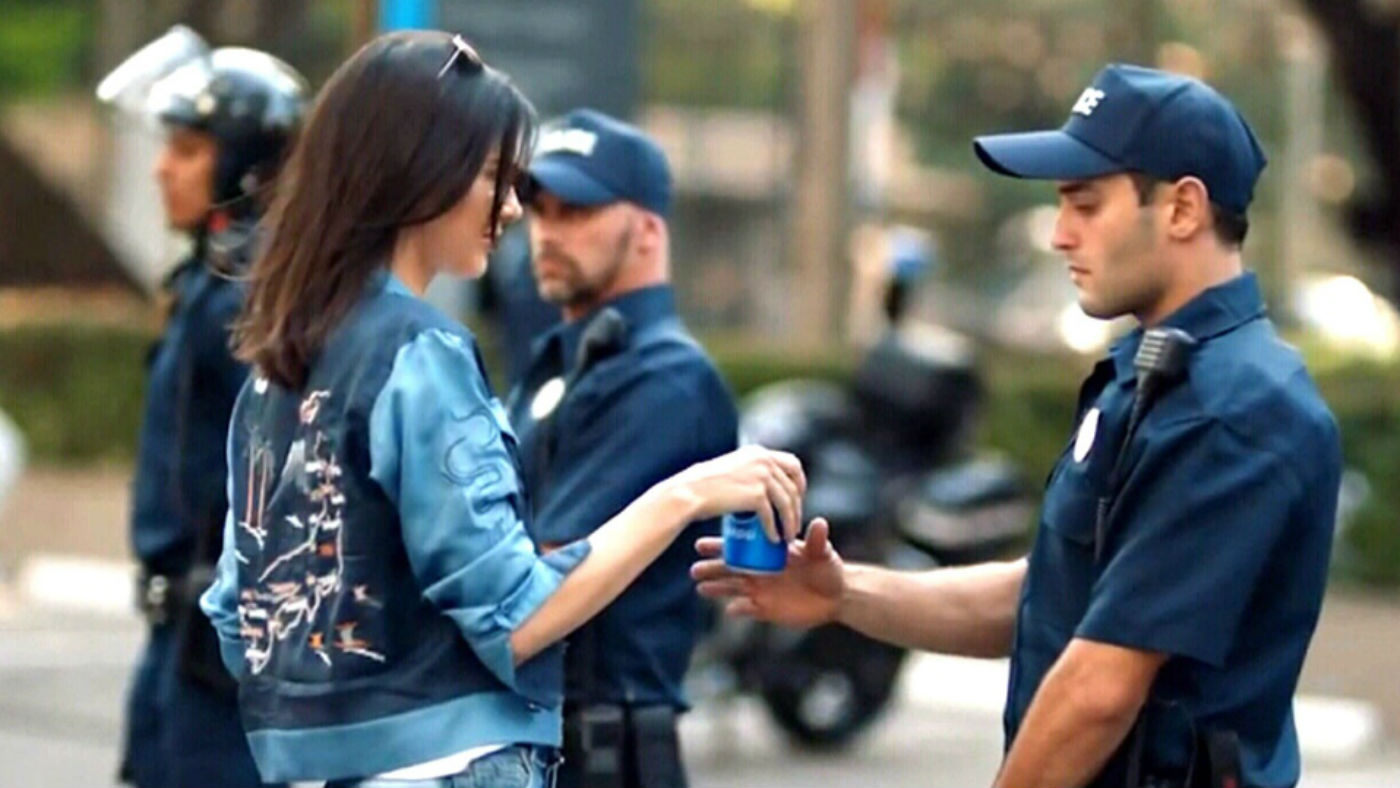The worst advertising campaigns of 2017
From Pepsi to Nivea to McDonald’s: this year's biggest missteps from some of the world’s biggest brands

A free daily email with the biggest news stories of the day – and the best features from TheWeek.com
You are now subscribed
Your newsletter sign-up was successful
Global brands spend millions of dollars a year on advertising but sometimes even seasoned marketing professionals get it so wrong their campaigns backfire massively.
Here are some of 2017’s worst culprits:
Kendall Jenner Pepsi Co.
The Week
Escape your echo chamber. Get the facts behind the news, plus analysis from multiple perspectives.

Sign up for The Week's Free Newsletters
From our morning news briefing to a weekly Good News Newsletter, get the best of The Week delivered directly to your inbox.
From our morning news briefing to a weekly Good News Newsletter, get the best of The Week delivered directly to your inbox.
It is always a risky move when international corporations try to use politics to sell their brand, and so it proved for Pepsi.
In a year of political upheaval the people behind this advert must have thought they could successfully tap into the zeitgeist but the sight of TV celebrity and model Kendall Jenner quelling protest tensions by offering riot police a can of fizzy flavoured water sparked outcry and accusation the drinks maker was trivialising legitimate street demonstrations, particularly those of #BlackLivesMatter.
The ad was widely mocked on social media and pulled from YouTube within 24 hours.
A recent report from ad group 4A’s found that 58% of consumers don’t want politics in their marketing at all, “and widespread criticism of a push like Pepsi’s speaks to that scepticism and the fine balance that must be struck” says MarketingDive.
A free daily email with the biggest news stories of the day – and the best features from TheWeek.com
“The shift is in how they approach these campaigns — looking to make a social good investment instead of a sales case for broadcasting something,” Aimee Woodall, founder and president of The Black Sheep Agency, said of brands.
“That’s why their message doesn’t click — it’s not a real message. It’s a just an ad, and we’re at a time where just making an ad doesn’t cut it. You have to get real.”
Dove Body Lotion/Real Beauty

Normally a pioneer in beauty advertising, Dove came under fire for two separate campaigns this year.
One, showing a black women turning into a white woman after using Dove body lotion, was immediately condemned when it was first posed on Facebook. The company apologised for the ad saying it “missed the mark” and criticised its marketing team by saying they should have known better and said “the tone deafness in these companies makes no sense”.
However the damage was done and the nearly 3,000 comments below the tweet were almost exclusively negative. Many social media users called for a boycott of Dove’s products.
The Guardian pointed out this was not the first time the company has been accused of racism. In 2011 Dove’s before-and-after advert charted the transition of a black woman to a white woman after using its body wash.
The Unilever subsidiary was also criticised this year for its body-positive packaging, part of its widely lauded 15-year “Real Beauty” campaign.

The UK promotion involved limited-edition body wash packaging presenting diverse representations of female bodies, but comparing women’s figures to largely shapeless, abstract soap bottles ultimately sent the wrong message and was met with both joking and genuine concern on Twitter.
Nivea ‘White is Purity’
Another skincare advert that sparked controversy for its supposedly racist undertone was Nivea’s deodorant campaign, featuring the words “White is Purity” written across an image of a woman.
Posted on the firm’s Facebook page and aimed at its followers in the Middle East, the German skincare brand accepted the ad was “misleading” and stressed the brand “valued difference”.
It was condemned on social media but also widely-shared among alt-right users, who the BBC says “trolled the Nivea account with comments, and images of Hitler and Pepe the frog, who was branded a hate symbol last year”.
McDonald’s grief-focused TV spot
The fast food giant McDonald’s was forced to pull an ad earlier this year after it was deemed hugely insensitive to those people who had lost loved ones. The advert showed a boy asking his mother about his dead father, only to be told the one thing they have in common is their taste for Filet-O-Fish.

It was widely criticised on social media for exploiting child bereavement to push a brand name and according to the Advertising Standards Agency (ASA) was the second most complained about advert in the UK in the first six months of the year, behind Moneysupermarket.com’s ‘twerking man’.
“It was never our intention to cause any upset,” a McDonald’s spokesperson told The Guardian. “We are particularly sorry that the advert may have disappointed those people who are most important to us: our customers.”